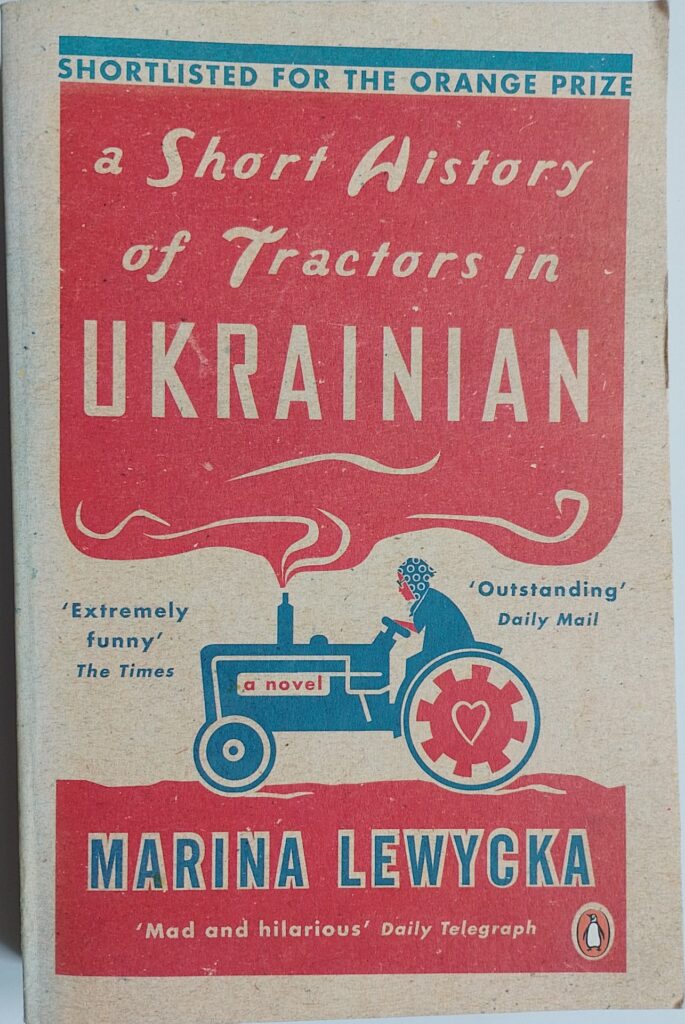First published 2005. Penguin, paperback, 2006, pp 326, c.85,000 words.
This book was an immediate success when it was first published, being shortlisted for the Orange Prize, winning the Bollinger Everyman prize for comic fiction, and appearing on many other prize short- and long- lists. It garnered many positive newspaper reviews and has sold over a million copies in the UK alone. I first read it shortly after it was published and hugely enjoyed it. How does it stand up today? And how does the latest Russian invasion of Ukraine colour a re-read?
The humour holds up extremely well: it is still a very funny book, concentrating its humour on the conflicts and evolving relationships inside a family to which almost everyone can relate, especially sibling rivalry: ‘see how we grew up in the same house, but different countries.’ [p241] I had quite a few laugh-out-loud moments on this re-read. For example: ‘…and the birth of feminism which taught me to see all women as sisters – all women except my sister, that is.’ [p239] A quick read of the book can be a highly pleasurable experience with chuckles on almost every page.
However, there is a much darker side to this book, veiled by the humour. There is the obvious theme of migration, with its many faces: economic and political. Then there is the substantial, deeply disturbing element of the vulnerability of the elderly and how easily they can be exploited. The third major theme is the history of Ukraine in the twentieth century, appallingly caught in Stalin’s grip and fought over by Russian and German armies in the second world war, and continuing up to the development of the corrupt independent capitalist state at the end of the century after the collapse of the Soviet Union. All these element ring powerfully today but are cleverly and gently sprinkled into the story, avoiding anything too preachy or totally distracting from the fun. They come across more like the treatment of Malvolio in Twelfth Night: it’s only when one stands back, or pauses to consider, that one sees how profound these elements are. Surrounding them is also the issue of selective memory. Facts vary depending on who is relating them. Who should be told what? Is it better that some memories be left to die to avoid hatreds being passed down the generations?
The basis of the story surrounds an eighty-four-year-old man with two grown up daughters and grandchildren. One of the daughters is relating the story. The old man and his wife arrived in the UK, ultimately from Ukraine, as young adult refugees after the second world war. One daughter had been born before the war, one after. The old man, recently widowed, has recently fallen ‘in love with a glamorous blonde thirty-six-year-old Ukrainian divorcée.’ His daughters are appalled. The old man is writing a book called ‘A Short History…’
Lewycka writes fluently and with style. For example: ‘in which questions wheeled around like startled birds.’ [p221] She is also a master of the humorous aside. Characters are well drawn and can be good or bad depending on circumstance and perspective. The plot is very cleverly constructed, leaving us guessing to the end how it is going to turn out. Also by the end we have learned why the sisters behave as they do, especially towards each other, and also why Ukraine has shown such remarkable spirit in trying to stop Russia taking over their country once again. This is a book that definitely bears a second reading.
© William John Graham, August 2022

